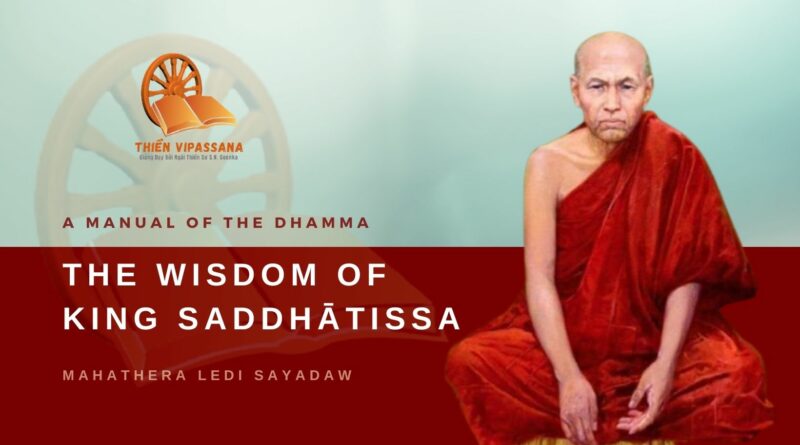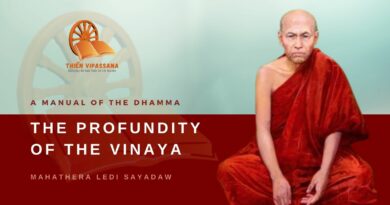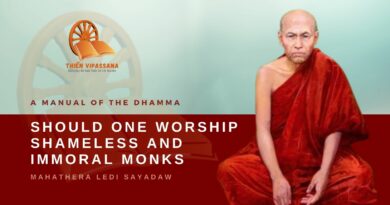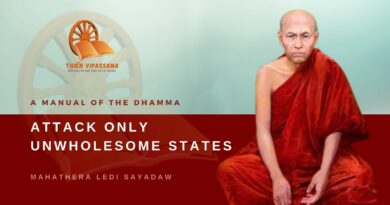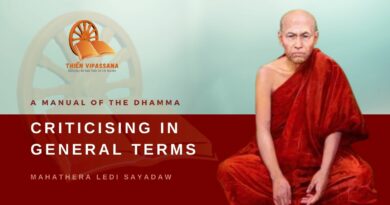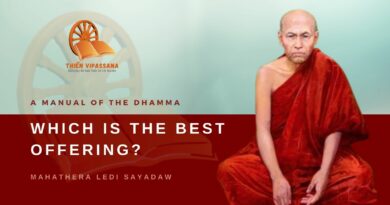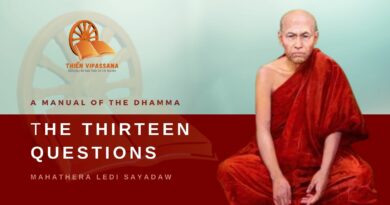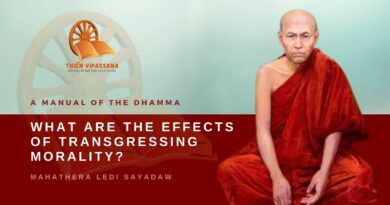The Wisdom of King Saddhātissa
Once, King Saddhātissa, knowing a monk to be shameless, controlled his mind and reformed his attitude to perform an act of reverence to this shameless monk. One day he went round the royal city sitting on his elephant. It happened that a shameless monk was fishing in the royal pond when the king and his retinue arrived at that place. As soon as he saw the royal procession, he dropped his hook and line, came up to the bank and sat quietly under a tree. Seeing this behaviour, the king wanted to offer almsfood to the monk. On returning to his palace, before taking his meal, he ordered fine food to be sent to the shameless monk, because he remembered the changed behaviour at the time of his encounter.
When the ministers arrived near the pond to offer the royal food, the shameless monk was fishing again. As soon as the king and his retinue had left, he resumed his fishing. Seeing this, the ministers’ devotion and confidence disappeared. As they saw this evil behaviour in the first place they did not want to offer the almsfood. Knowing that the ministers had seen him, the monk instantly dropped his hook and line and sat quietly under a tree. The ministers had seen that he was shameless and so did not offer the royal almsfood to him. They returned to the palace and reported the matter to the king. The king asked whether they had offered the royal almsfood, they replied that they did not do so as the monk was shameless.
Then the king questioned them about the behaviour of the shameless monk when he saw them approaching. The ministers replied that he instantly dropped his fishing tackle and sat quietly under a tree. The king remarked that the monk had forsaken his shameless behaviour and shown moral shame and dread at that time. These great virtues, moral shame and dread, are two of the seven states possessed by all good persons, and are treasured by the wise. The king asked the ministers the cost of a royal breakfast. After the ministers reported the cost of the food, he said that moral shame, dread, and remorse were more valuable, and were worthy of respect as they were true riches within the heart. He again ordered them to offer the royal food to the shameless monk in view of these essential good factors found in him at one time or another. The ministers then offered the royal food with due respect and honour. They had changed their attitude.
King Saddhātissa, being intelligent and wise, possessed the powers of confidence and wisdom, so he could show respect even to a shameless monk. Somehow he sought and found a few virtues in a shameless monk and his mind was focused on these select noble states, which he revered. By instantly showing shame and dread this shameless monk showed the characteristics of a good monk, thus becoming worthy to receive the royal almsfood. Although the recipient was shameless, the noble attitude and concentration on a few noble virtues raised the king’s offering in status to the blessing of honouring the worthy. The king’s wholesome attitude was a great blessing. Seeking virtues even in a shameless monk he follows this injunction from the Maṅgala Sutta.

